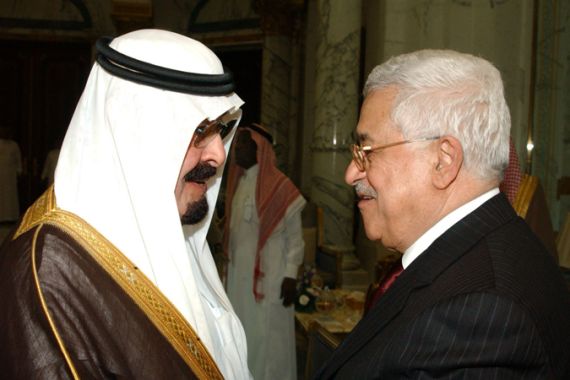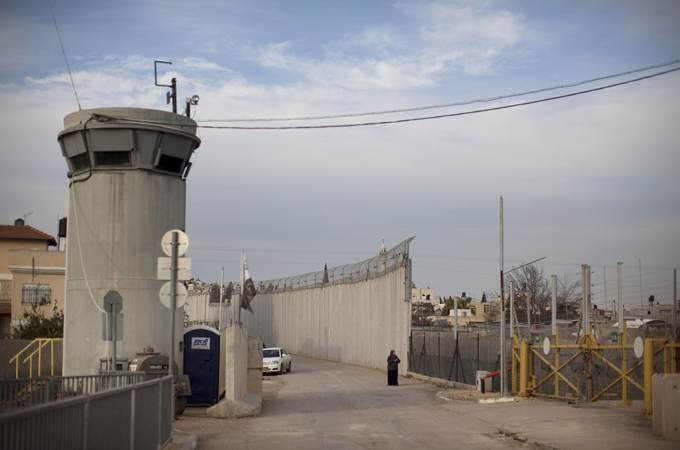The Saudis prepare to step up
Palestine’s plan to declare statehood at the UN has attracted new supporters amidst threats from the US and Israel.

 |
| The famous Oslo agreement stipulated that Palestine should have an independent state by 2000, instead, they have lost more land to illegal Israeli settlements [GALLO/GETTY] |
One of the biggest problems with our Middle East policy – and international policy in general – is the idea that the world is made up of good guys and bad guys and that one can determine which is which by nationality.
For better or worse, that isn’t true. One can no more deem the Israelis good and the Palestinians bad than draw such distinctions between French and Germans, Serbs and Croats, Japanese and Chinese. It’s all a matter of circumstance, of who is on top and who is on the bottom.
That is why I don’t accept self-righteous attacks on Israel by Palestinians who seem to believe that if the shoe were on the other foot Palestinians would treat Israelis with sweet sympathy. After all, didn’t we learn after World War II how quickly victims become victimisers?
Congress, of course, chooses not to understand that. With the strong encouragement of its AIPAC donors, Congress treats Palestinians as warmongers even when they are pursuing peace and Israelis as peace-loving even when they reject peace. That is just cynical. As for the people demanding Congress behave that way, they are just ethnic chauvinists who cheer their team on as if it were a baseball game and not a contest that kills.
New resolutions
This week the Senate unanimously passed an AIPAC-drafted resolution warning the Palestinians of dire consequences if they go to the United Nations to seek recognition of their state.
The bill is full of the usual AIPAC boilerplate about Hamas, terrorism, and, by means of contrast, Israel’s enthusiastic endorsement of achieving peace through negotiations.
The only new thing, which demonstrates a real sense of humour, is the pointed reference to the US $550 million the United States provides to the Palestinians annually, with the suggestion that a half billion in aid should make them heed our wishes.
The Israelis, of course, receive six times as much and have essentially told President Obama to drop dead every time he has asked them for a temporary settlement freeze to help him advance negotiations.
But it is the $550 million that the resolution is all about. The Senate, urged by AIPAC, is telling Palestinians that if they go to the UN they can forget about any aid from us.
US opposition to the Palestinians going to the UN is absurd.
What alternative do the Palestinians have? According to the terms of the Oslo agreement of 1993 (the mutual recognition agreement signed by Yasser Arafat and Yitzhak Rabin), the Palestinians should have had their state by 2000 at the latest.
But in 18 years, the Israelis have not yielded a single inch of territory. (They pulled their troops out of Gaza but control its air, land and sea entry points and keep Gaza under blockade.) The number of settlers in the West Bank (the site of the future state) has increased threefold, from 100,000 to well over 300,000. And, as mentioned above, Israel has repeatedly refused President Obama’s request to freeze settlement activity for three months in order to facilitate negotiations.
Nonetheless, the AIPAC/Senate resolution demands that Palestinians get back to unconditional “direct negotiations” with Israel and stay away from the UN. As for settlements, the resolution says Palestinians should negotiate over the future of the land while Israel is gobbling it up with expanded settlements and more settlers.
The Palestinian response: Been there, done that, gained nothing.
As the Israelis did in 1947, Palestinians should go to the UN to achieve recognition. Following that, the state of Israel should negotiate a final status agreement with the state of Palestine.
Recognition
There are those who say that the Palestinians will not succeed at the UN, that the United States will do Israel’s bidding and block statehood by using its veto power at the Security Council.
That is probably true. Nonetheless, the Palestinian position will be immeasurably strengthened by a broad show of international support. The best evidence of that is how hard Israel is working to prevent a UN vote. If UN action were so insignificant, neither Israel nor its lobby here would be pulling out every stop (like passing this Senate resolution) to scare the Palestinians out of going there.
The threat to cut off US aid is a classic case of cutting off our nose to spite our face. The only leverage we have on the Palestinians comes from that aid. If we end it, they will turn for support elsewhere.
The elsewhere is Saudi Arabia.
In a Washington Post op-ed last month, Prince Turki al Faisal, who was Saudi intelligence chief from 1977 to 2001 and ambassador to the United States from 2004 to 2006, wrote that “the time has come for Palestinians to bypass the United States and Israel and to seek direct international endorsement of statehood at the United Nations.” He also says that the United States will pay a price if it blocks statehood:
“In September, the kingdom will use its considerable diplomatic might to support the Palestinians in their quest for international recognition. American leaders have long called Israel an ‘indispensable’ ally. They will soon learn that there are other players in the region – not least the Arab street – who are as, if not more, ‘indispensable’. The game of favoritism toward Israel has not proven wise for Washington, and soon it will be shown to be an even greater folly.”
His conclusion is startling:
“We Arabs used to say no to peace, and we got our comeuppance in 1967. In 2002 King Abdullah offered what has become the Arab Peace Initiative. Based on UN Security Council Resolution 242, it calls for an end to the conflict based on land for peace. The Israelis withdraw from all occupied lands, including East Jerusalem, reach a mutually agreed solution to the Palestinian refugees and recognise the Palestinian state. In return, they will get full diplomatic recognition from the Arab world and all the Muslim states, an end to hostilities and normal relations with all these states.”
Now, it is the Israelis who are saying no. I’d hate to be around when they face their comeuppance.
That “comeuppance” is inevitable unless Israel comes to its senses, which most likely requires electing a new government and ignoring the advice of ethnic chauvinists here who are always willing to fight to the last Israeli. I don’t know if Prince Turki really would “hate to be around” when Israel is forced to pay the price for the current government’s stupid arrogance. I know I would.
MJ Rosenberg is a Senior Foreign Policy Fellow at Media Matters Action Network.
The views expressed in this article are the author’s own and do not necessarily represent Al Jazeera’s editorial policy.
A version of this article was previously published on Foreign Policy Matters.
